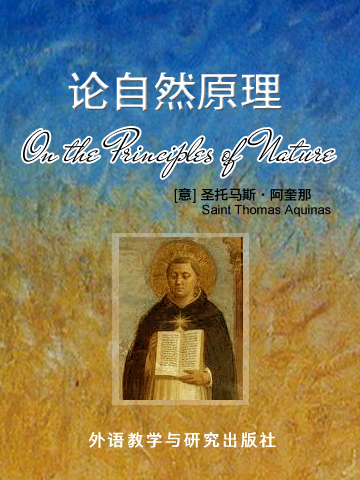简述阿奎那的亚里士多德主义自然哲学纲要。
Because all knowledge and every definition is through the form, therefore, prime matter cannot be known or defined by itself, but by the composite: and so we say that prime matter is that which is related to all forms and all privations like the bronze is related to the statue and to the privation of some figure. And prime matter here means prime in an absolute way…
本文从分析自然事物的潜能与现实、生成与毁灭入手,循序渐进地剖析了它们的三个自然原理(即质料、形式、缺乏)和四个原因(即质料因、形式因、成效因或者动力因、目的因),区分了原理、原因与元素;并且在辨析四个原因之间的关系基础上,进一步比较了谈论同类原因的五种不同方式;最后,根据同(单)义、异(多)义、类比三种谓述方式,阐明了自然原理之间的差异性和统一性。全文简洁地表达了阿奎那的亚里士多德主义自然哲学纲要。
Notice carefully that some thing can be although it is not, whereas another thing truly is. That which can be is called being in potency; that which already is, is called being in act. But there are two kinds of being: namely essential being or the substantial being of the thing (as, for example, to be a man) and this is to be absolutely. The other kind of being is accidental being (as, for example, to be a white man), and this is to be after-a-fashion or in some qualified way.
- On the Principles of Nature (De principiis naturae)
- 书评 写书评
- 笔记
-
书评加载中...























 京公网安备 11010802032529号
京公网安备 11010802032529号
笔记加载中...